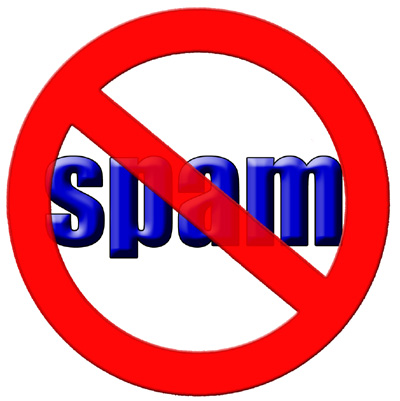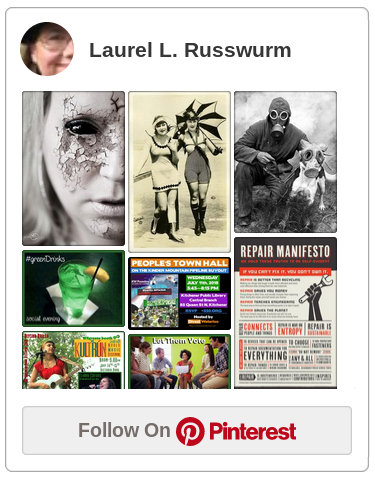Spammer, Spoofed or Hacked?
 Being a self-publishing author is a lot of work. There are a plethora of social media platforms, and communication tools that make it possible for authors (or any creative) to connect with their audience.
Being a self-publishing author is a lot of work. There are a plethora of social media platforms, and communication tools that make it possible for authors (or any creative) to connect with their audience.
One of the best ways for authors to speak to potential readers is through a blog. Clever authors only have one (or maybe two) but I seem to have created rather more than that… worse, instead of having a regular posting schedule, my articles are written when I think there is a need for them, so my posts tend to be erratic. Some might even say I have too many blogs, and I would agree I am indeed stretched far too thin. So when I get a minute (hah! that is the problem, isn’t it!) I’m thinking of consolidating them.
I myself have been a member of GoodReads and many other online communities for some time, even though I’ve not managed to be as involved as I’d like yet. But even though I don’t check blog comments every day, I do clear out the spam periodically. having multiple bogs, spam might annoy me even more than it annoys you. Sometimes I actually pay attention to the spam comments I delete, if to only note names to avoid.
Imagine my surprise when I saw I had received a spam comment from another GoodReads author!
It’s the simplest kind of spam comment possible; the kind that might have been the innocent mistake of someone new to blogs. There is no actual comment, that part is blank, so the only comment is the name of the commenter, in this case, Justin Peatling. And sure, it isn’t impossible for someone new to the Internet to make such mistakes. And yet this commenter did manage to include a link back to his GoodReads author page.
It isn’t that anyone is expected to click on that link; without any interesting comment, that’s not very likely. But such comments aren’t meant for me, or even you. They are meant for search algorithms. Because links are what drive the Internet. The more links flowing to your websites, the more “google juice” you have, and the higher your site will be ranked by search engines. That makes it easier for your audience to find you, and you your audience. Comment links help spammers promote commercial websites.
Still, this might have been an honest mistake. So I followed the link to the author bio on GoodReads and left a message to explain that while connecting with other creatives to build community is a good thing, spam is not.
the author:
Dear Justin Peatling:
It is horrendously tacky to leave spam comments on other author’s websites, and even worse on other GoodReads author’s websites.
If you want to get your name out there, engage with the site and leave a REAL comment. Chances are good, the other author would respond to you, and there would be something on the internet that might attract a reader or two. But spam? Self publishing authors have enough spam comments to counteract without having to put up with it from other authors.
(And yes, most of us have learned not to publish spam comments, so it isn’t even working; all you’re actually doing is annoying other authors.)
Sincerely,
Laurel L. Russwurm
And that’s when I noticed the name wasn’t exactly the same. The comment name was “Justin Peatling” but the author profile is for “Justin Peacock.” The names are close, visually close enough that the eye doesn’t instantly spot the difference.
(That’s one of the tricks spammers use to fool us into publishing their links.)
But the spam comment in my blog most definitely links to Justin Peacock’s GoodReads page.

Justin Peatling
goodreads.com/author/show/1304715.Justin_Peacock
23.244.164.39
After leaving a message, the next thing was to try to discover if Justin Peacock is a legitimate author. All the links on the Goodreads page go to what is supposed to be his website. But the blog at the end of the link is in French, which doesn’t make much sense for an American hard boiled mystery writer. Particularly when the blog isn’t about mysteries, hard boiled or otherwise. It’s a one page tech blog. A scam.
There are no links to the book(s) by Justin Peacock published by Pocket Black Lizard books on the GoodReads profile. But two Justin Peacock books actually seem to exist. Which suggests Mr. Peacock himself is not responsible for my spam comment. (If he was, he would surely have linked his own books…) And it’s good odds he would have spelled his name correctly, too.
I don’t know Mr. Peacock, and there’s no way to contact him, if he has published contact information I’ve not found it. (Funny thing; many people don’t publish their email address in an effort to avoid spam.)
But I can (and will) let GoodReads know through their How do I report a security issue? link.
Advice
Never publish spam comments (even if you agree with it, even if it is selling something you want.)
Always protect your privacy and online reputation by using your personal information wisely, and locking it behind a strong long password when necessary.
























 Project Gutenberg
Project Gutenberg Project Gutenberg Canada
Project Gutenberg Canada